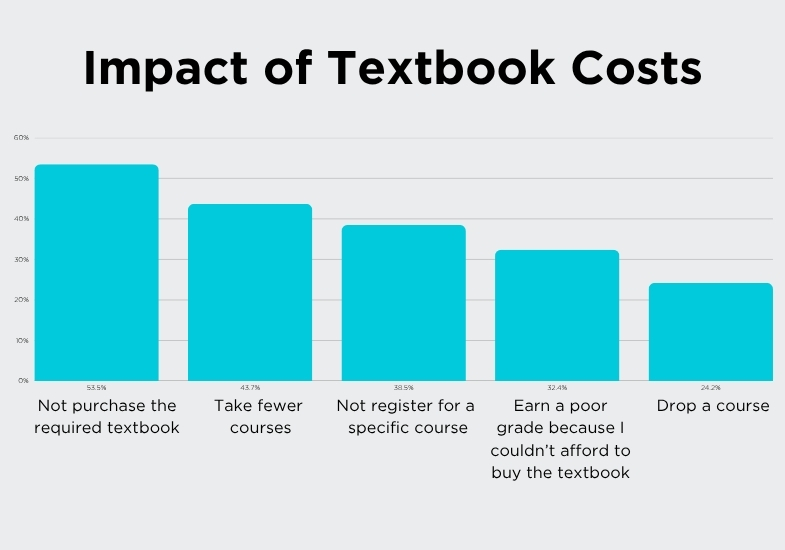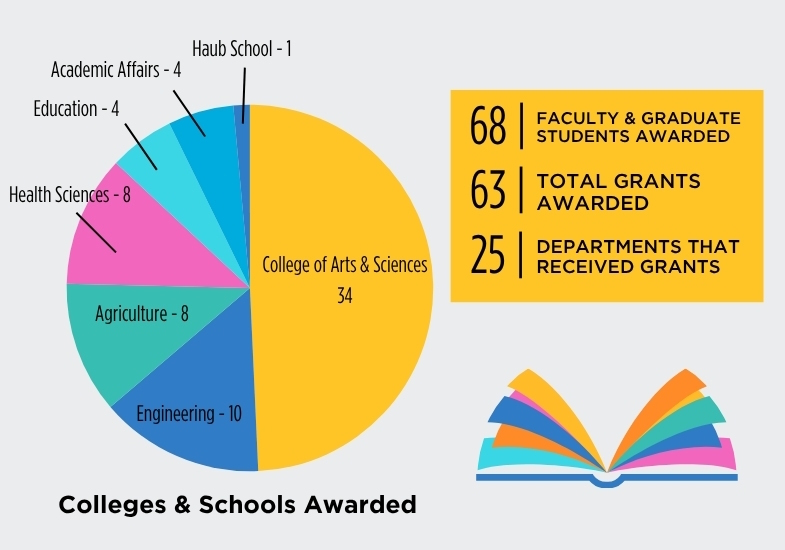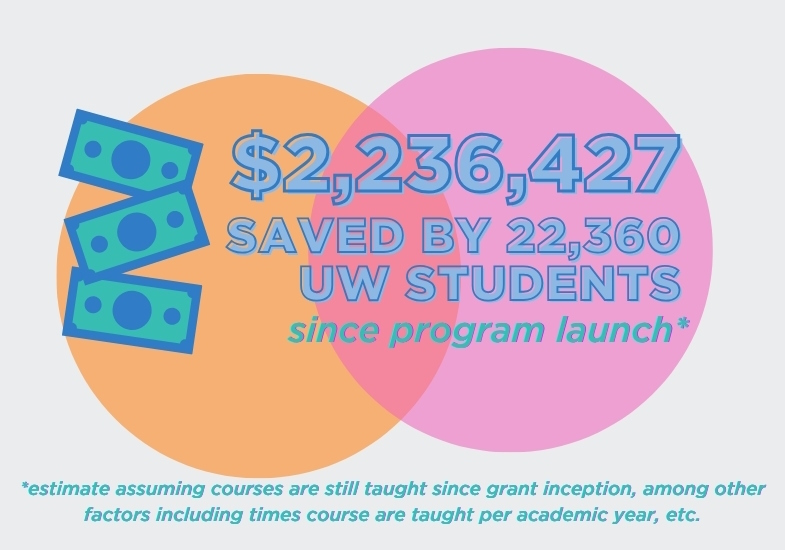
Impact of Open Education Resources
Denis Shannon, Electronic Resource Librarian & Kathryn Senn, Innovative & Immersive Technologies Librarian
Published February 28, 2024
3 Minute Read
Introduction
Open Access (OA) publications allow for academic content to be shared freely without paywalls. A subset of OA publications called Open Educational Resources (OER) are focused more specifically on course materials for students. These OER often take the place of traditional textbooks, which can be very costly for students. OER not only allow students to save money when preparing to take college courses, but also allow instructors to tailor their course materials directly to the course they are teaching, and the students in those courses.
Impact of OER at National Level
As college tuition and associated fees continue to rise, so too have the prices of textbooks. Between February 2020 and January 2023, the overall cost of textbooks to students has risen 7.2%, according to the Bureau of Labor Statistic’s 2023 report. A 2022 report conducted by the National Association of College Stores found that students are spending less on course materials than in previous years and around one in four students opted out of purchasing at least one course material.
This is further corroborated by a survey conducted by the Florida Virtual Campus in 2022 where 53.5% of survey respondents said they did not buy a required textbook because of its cost.
The impacts of such high textbook costs can be detrimental to students and their academic success. The same study found that 43.7% of students surveyed took fewer courses, 38.5% did not register for specific courses, 32.4% earned a poor grade because they were unable to afford a required textbook, and 24.2% dropped out of a course entirely.
Open-Source Textbooks are a way to help alleviate the financial burden faced by many college students. OpenStax, an OER publisher, has saved seven million students a total of $2.9 billion since 2012 by providing free textbooks and resources in a variety of subjects to students and instructors, including those at the University of Wyoming!
University of Wyoming Impact
In Fall 2017, the University of Wyoming Libraries launched the Alternative Textbook Grant program. This program allows faculty at UW to apply for grant funding to shift their courses from relying on traditional textbooks to utilizing OER materials instead. They can do this by adapting pre-exisiting OER materials into new materials or create and publish new authored content for a course.
Since the beginning of this program, 68 faculty and graduate students across six colleges and schools at UW have been awarded 63 total grant awards.
It is estimated that 22,360 students have saved over $2.23 million on course materials over the last seven years.*
The UW Libraries have provided $172,900 in grant funding to these 68 faculty and graduate students to support their projects of converting their courses to use OER materials. This is a 1,193% return on investment.**
Conclusion
OER are part of the larger Open Access movement, and the University of Wyoming Libraries are happy to support our faculty as they shift towards relying on and implementing OER.
We invite motivated faculty interested in innovative engagement with their course materials to submit ideas for funding. Proposals intended to adopt, adapt or create OER materials will be considered. Grant awards range from $2,500 to $5,000. UW Libraries offers the Alternative Textbook Grant two times per academic year.
Interested applicants are required to attend the “OER 101” workshop Tuesday, March 5, before submitting grant applications. Proposals are due Tuesday, March 26.
More information:
- OER 101 Workshop - Tuesday, March 5
- OER Lunch & Learn Panel Information - Wednesday, March 6
- Alternative Textbook Grant Information
- Fall 2023 Grant Winners
**estimate assuming courses are still taught since grant inception, among other factors including times courses are taught per academic year, etc.





